Must Reads: Sex crime case renews tension in Mexico between Catholics and evangelical church
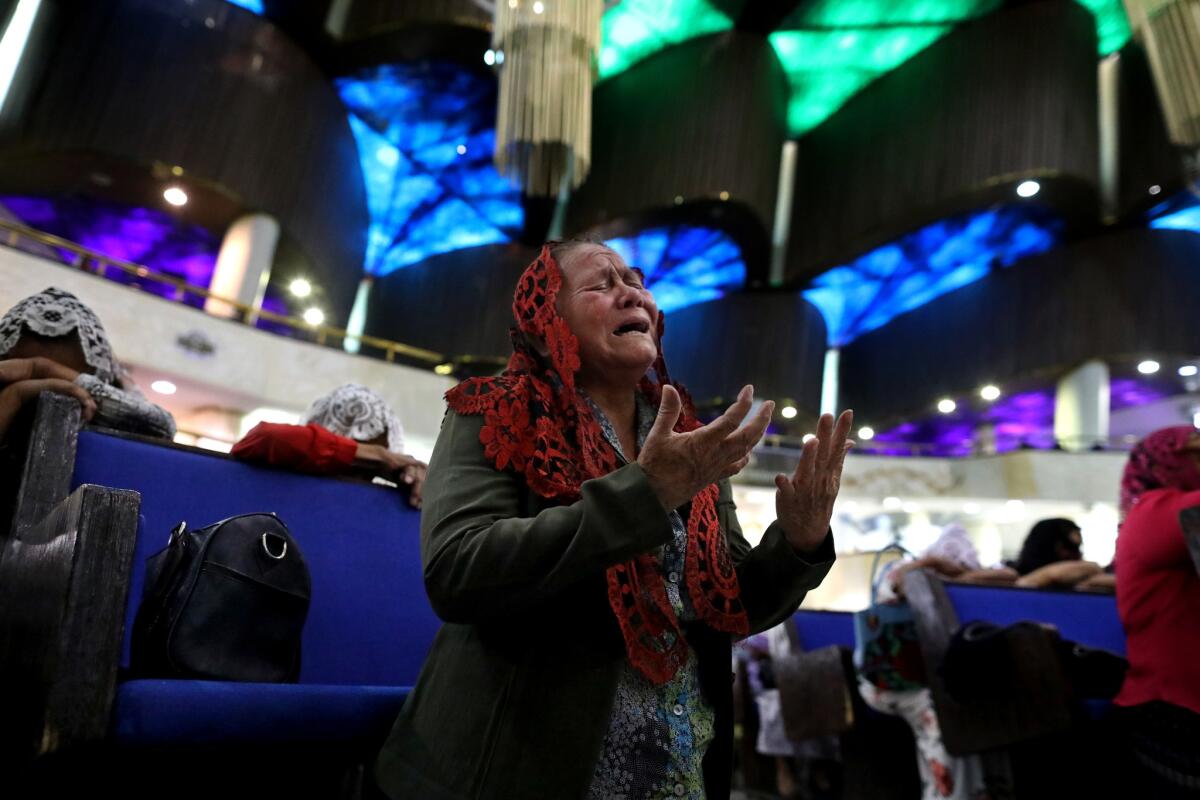
- Share via
The women kneel on the cool marble, their heads draped by shawls bearing the initials NJG. Their hymnals are inscribed with the letters, as is the soaring temple that serves as the headquarters of La Luz del Mundo.
In homes and businesses, along streets with names such as Nazareth, Jerusalem and Jericho, the face of “the apostle” — Naason Joaquin Garcia — beams from gilded frames. The faithful sing songs about him, one after another.
“Hermoso Naason, tu iglesia, tu pueblo te ama,” a choir of eight men crooned during a recent evening worship. “Naason, your church, your town loves you.”
Guadalajara — the land of tequila and mariachi — long has been a bastion of Catholicism. For nearly 100 years, it also has been the cradle of the largest evangelical church in Mexico.
The church dominates life in this Guadalajara neighborhood, a kind of Mexican version of Pleasantville, the fictional, wholesome Midwestern town. Markets don’t sell cigarettes or alcohol; there is no graffiti marking the walls. There’s a calm far removed from this city’s buzzy din.
Along Hermosa Provincia’s streets, which all converge on the soaring, wedding cake-like church, cars have stickers that read NJG. A store along Dr. Samuel Joaquin Flores road sells bags, keychains and pins with Garcia’s initials, as well as $40 framed photos of the apostle.
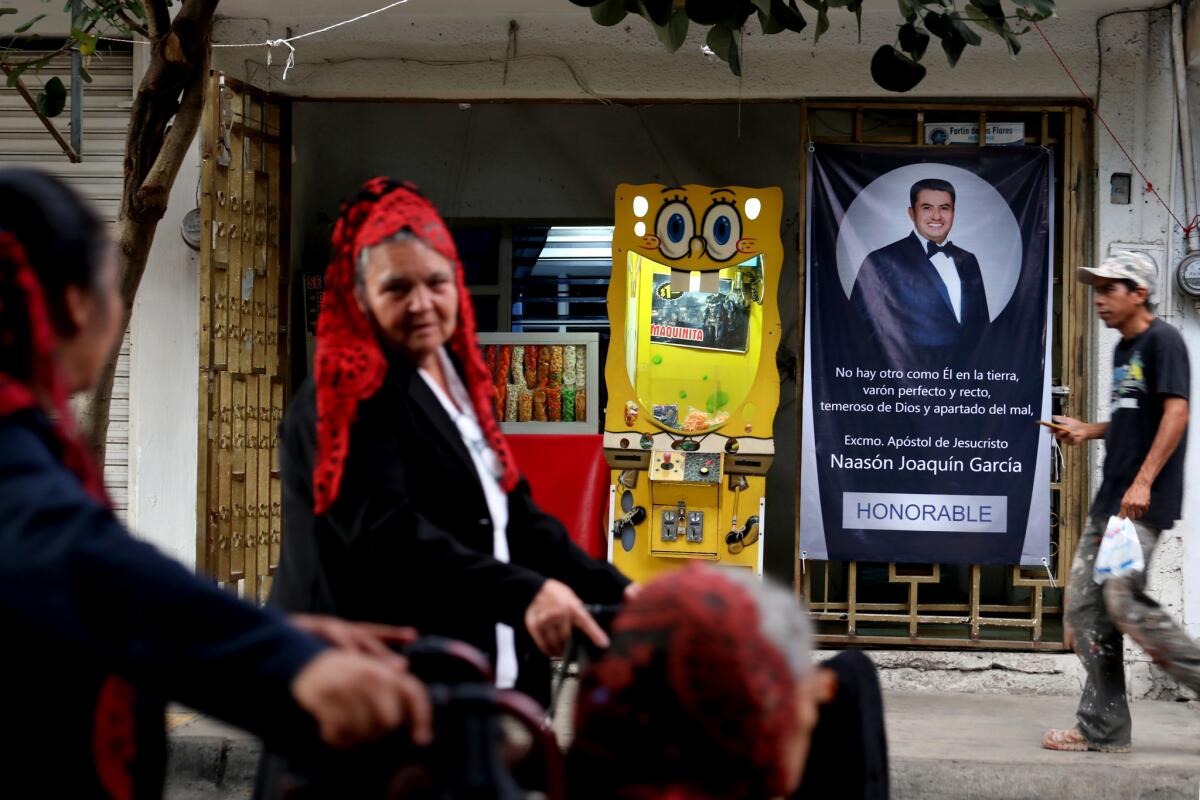
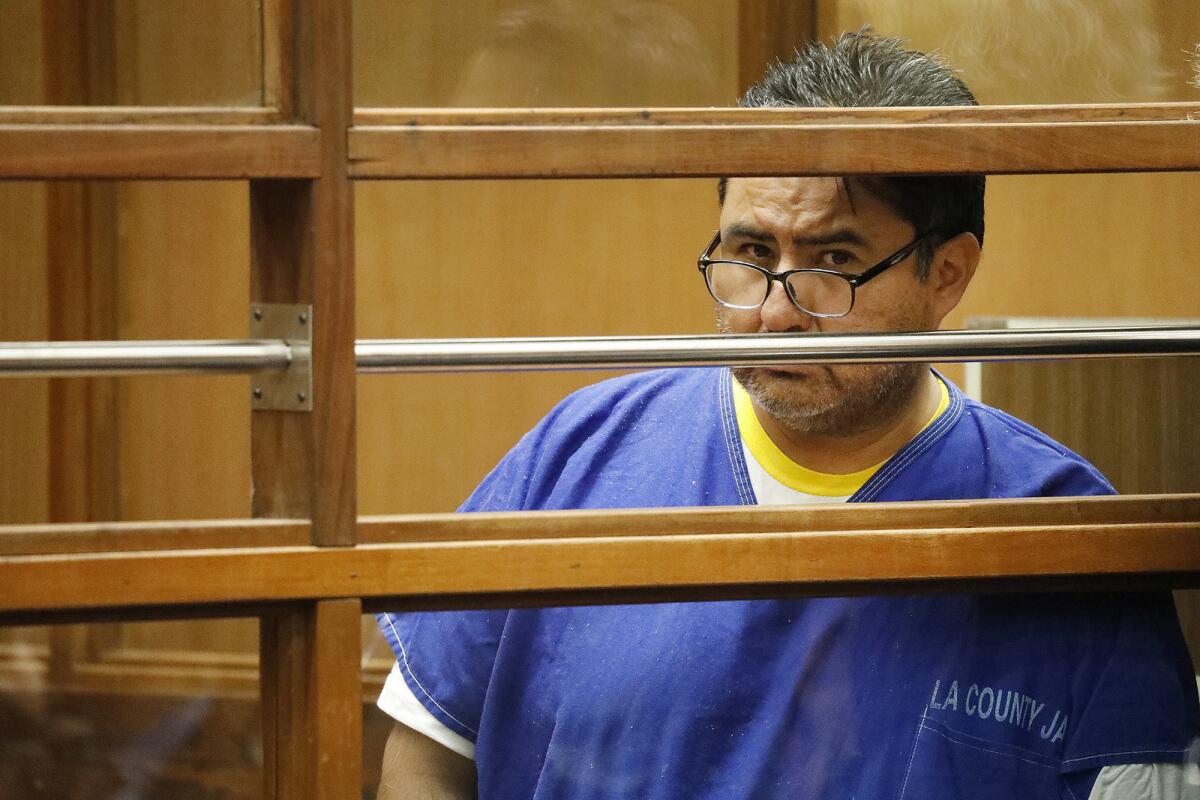
Outside, among the nonbelievers, generations of questions and myths have swirled around Garcia and the two apostles before him — his father and grandfather.
They gossip about what it means if an apostle dreams of you and spread rumors that the apostle is allowed to sleep with a woman before she marries her husband. Parishioners, familiar by now with the stories, call these “campaigns of disinformation” and blame long-running tensions with Catholics.
The rumors only strengthened after Garcia’s arrest this month in Los Angeles on charges of human trafficking, rape and child pornography. Los Angeles County prosecutors are poring over evidence to build their case, and Garcia is being held in lieu of an unprecedented bail of $50 million.
Since his arrest, parishioners have reported being verbally assaulted and people have vandalized churches. On one, the word “rapist” was scrawled in yellow.
“Guadalajara is a society that has for years been very Catholic, and it’s a combative Catholicism — not just conservative,” said Renee de la Torre, a researcher at the Center of Research and Graduate Studies in Social Anthropology. “There has long been tension between Catholics and members of La Luz del Mundo.”
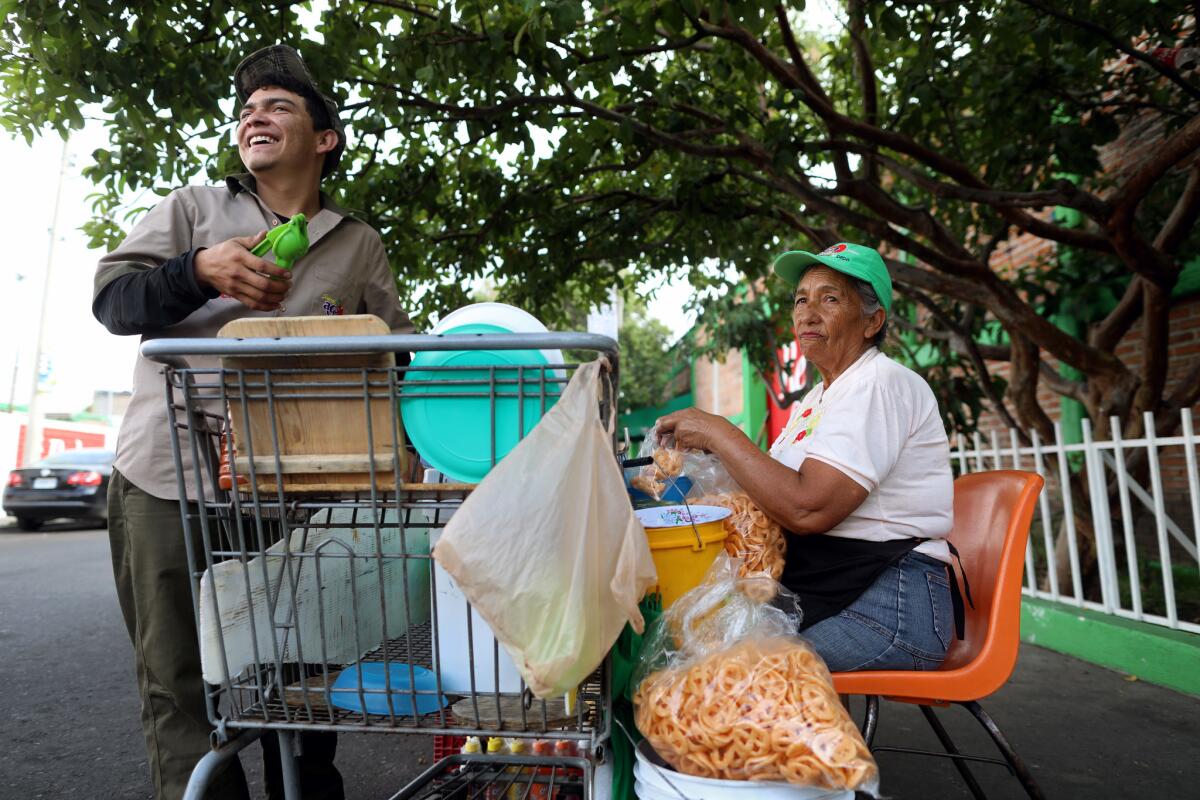

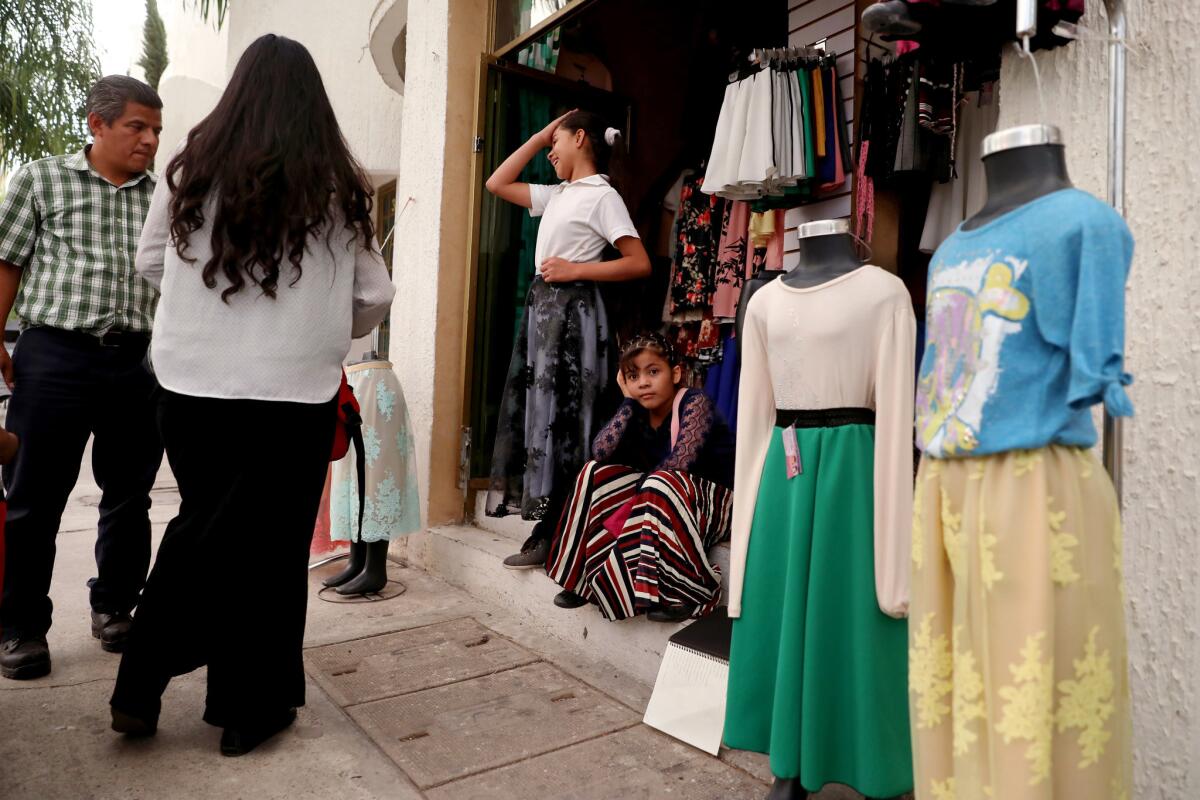
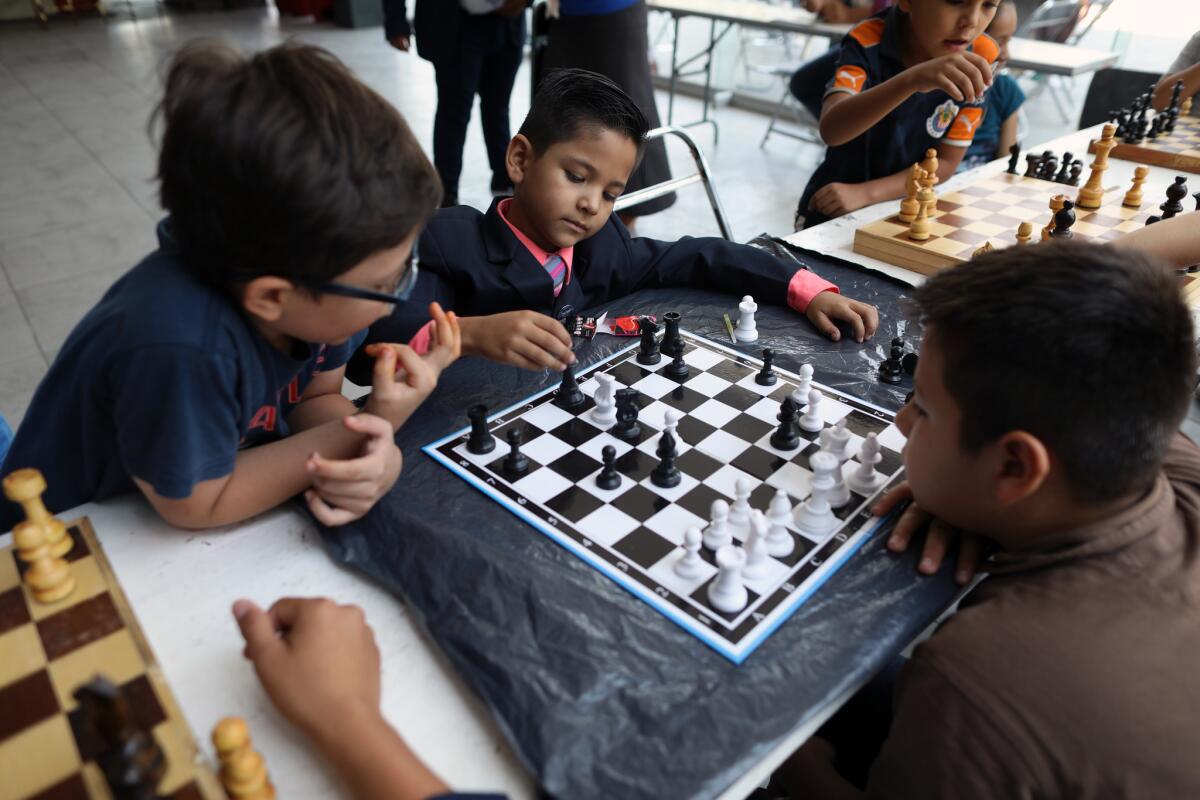
Outside Hermosa Provincia, La Luz del Mundo’s faithful live beside homes where Jesus Christ’s image is printed on cards tucked into window frames and the Virgin Mary is painted on shop walls. Signs proudly assert that these are Catholic homes — and they intend to stay that way.
Along Jardines Botanicos, behind a broken pane of glass on a door, a weathered sign declares in red lettering: “Viva Cristo Rey! Viva la Virgen Madre de Dios.”
The apostle’s followers will tell you that they didn’t choose Guadalajara, that it was chosen for them.
In 1926, the teachings go, God called on Eusebio Joaquin Gonzalez — Garcia’s grandfather — to restore the church established by Jesus Christ and also gave him a new name: Aaron. Followers believe Gonzalez embarked from the city of Monterrey with his wife and a Bible. When he reached Guadalajara more than eight months and 500 miles later, God is said to have spoken to him again: “I want you to preach the Gospel in this city, because I have a great people who will serve me and who will be the example for many nations.”
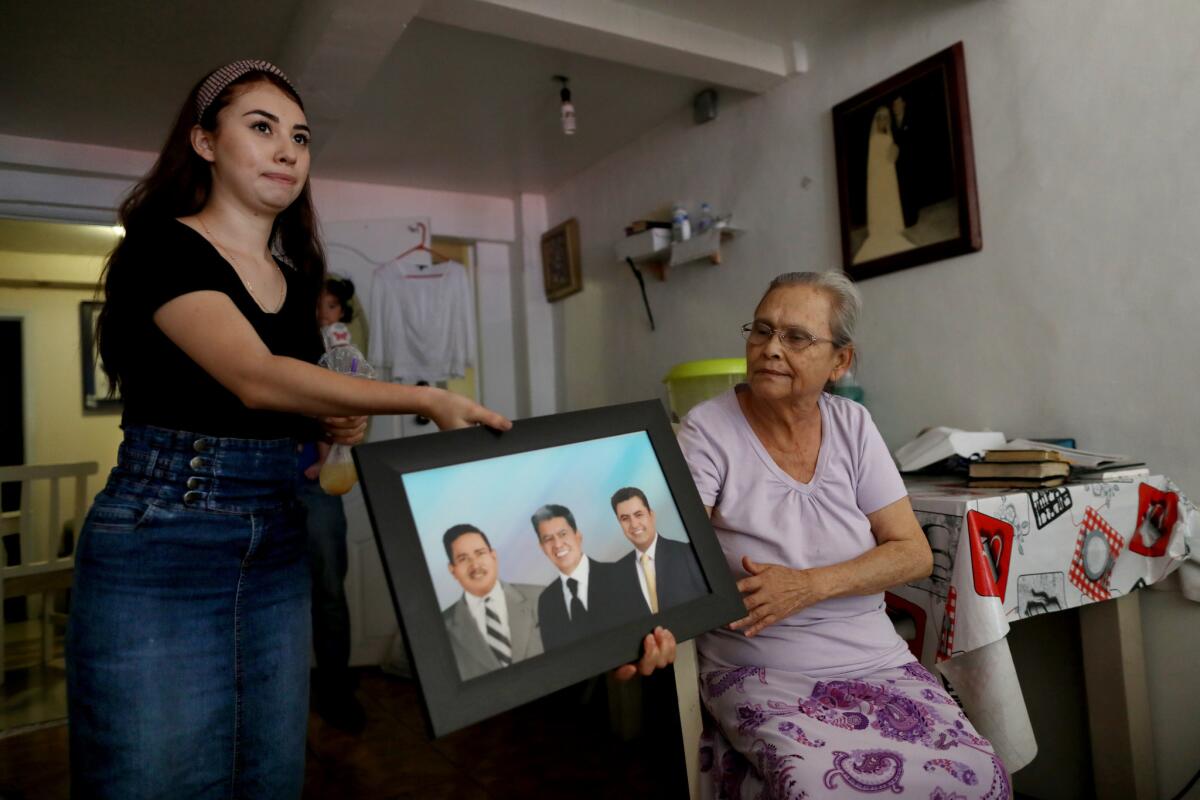
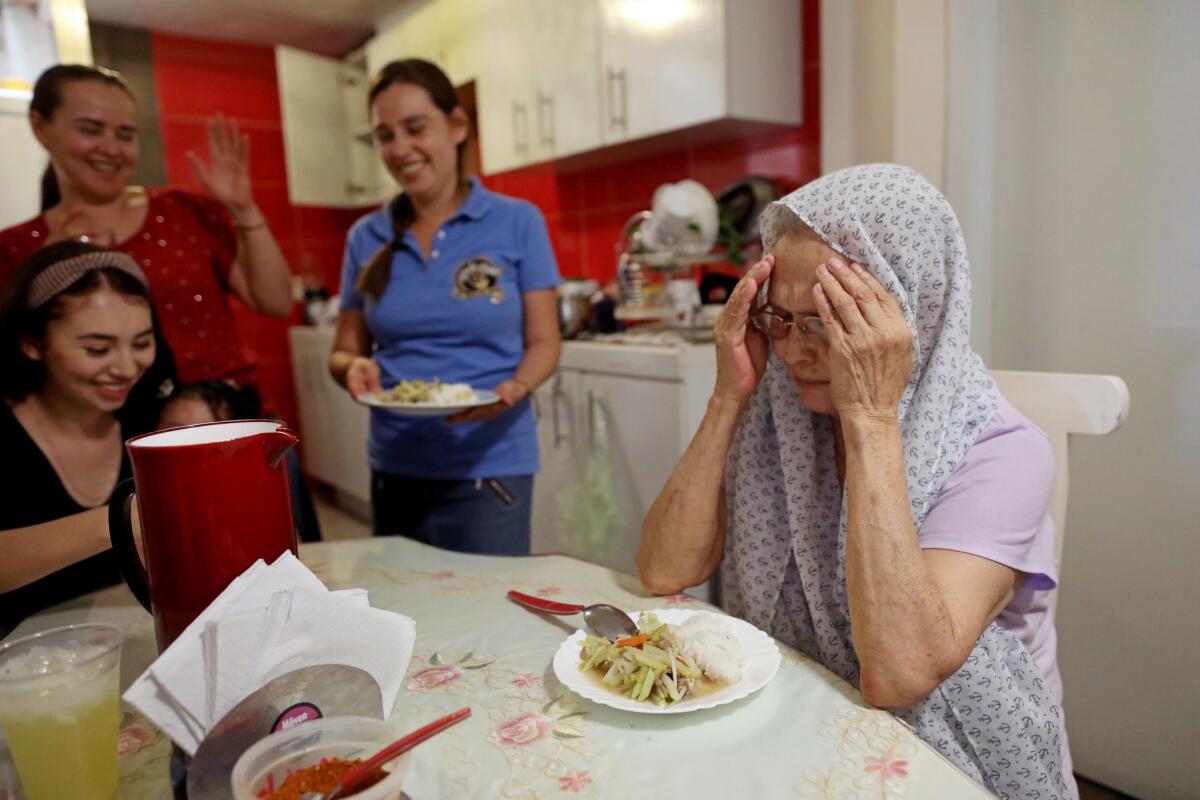
In the living room of a home on Jerusalem street hang photos of Garcia and his father and predecessor, Samuel Joaquin Flores, who died in 2014. In a painting in the bedroom, Gonzalez is pictured beside his son and grandson.
“Nuestros tres grandes amores,” said 46-year-old Eunice Victorin Robles, her eyes shining as she held her hand to her heart. “Our three great loves.”
“They’ve built us a happy world,” her 42-year-old sister, Magdalena Victorin Robles, said.
The 10 siblings, five men and five women, were born into the faith. Four of the men are ministers, three in the U.S. and one in Mexico. The sisters and brother who remain in Guadalajara alternate spending days with their parents in this home.
Their 70-year-old mother, Ramona Robles Garcia, knew all three apostles, whom she describes as “very loving.” Whenever she saw them, she said, she “always felt the presence of God.”
The family is so thankful for the apostles, they said, they want to show it however they can.
“If I can go and sweep outside their house, it’s a pleasure to do it,” Magdalena said. “It’s gratitude, a way to repay all they give for us.”
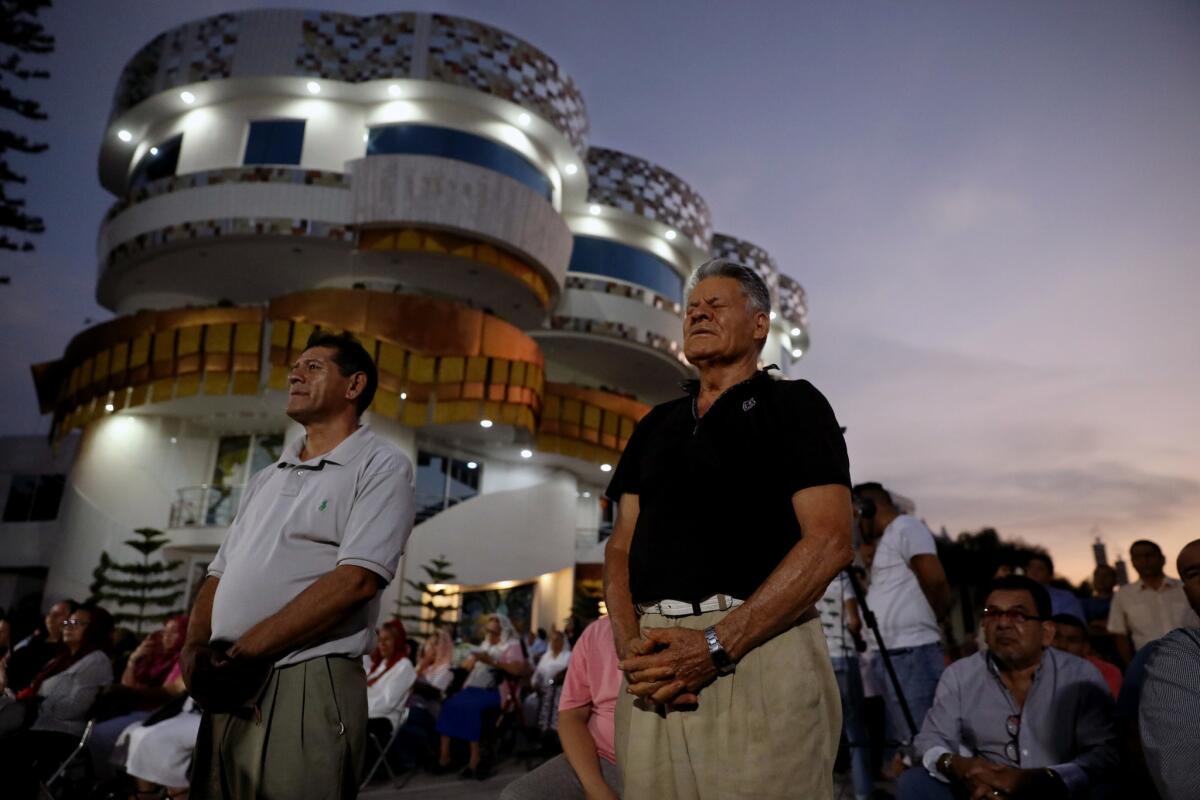
In the face of the accusations against Garcia and two co-defendants, supporters have maintained that he is innocent. The church’s Council of Bishops reaffirmed its “complete moral support and belief in the innocence of the Apostle.”
For followers, one of the most important yearly rituals, the Holy Supper, falls on Aug. 14 — Gonzalez’s birthday. On May 7, residents in Hermosa Provincia celebrate Garcia’s birth. Throughout the neighborhood, banners commemorate it more than a month later: “Your children of this home are happy in your 50 years of life: Congratulations, we love you!”
“They are like apostles who were sent by Jesus Christ himself,” said Patricia Fortuny, a Mexican anthropologist who has studied La Luz del Mundo for decades. “They are not simple men, they are not simple ministers. In that sense, they have created a special cult to their personality.”
Even outside the neighborhood, parishioners of La Luz del Mundo have painted the temple on the side of their homes, hung signs that express love for their “father NJG” and unfurled banners featuring his photo. Lyrics filter out from El Comal de Rina, where women in ankle-length skirts — the outfit of the majority of the women of La Luz del Mundo — prepare quesadillas and gorditas to sell.
“Es el divino Naason Joaquin,” a man sings. The divine Naason Joaquin.
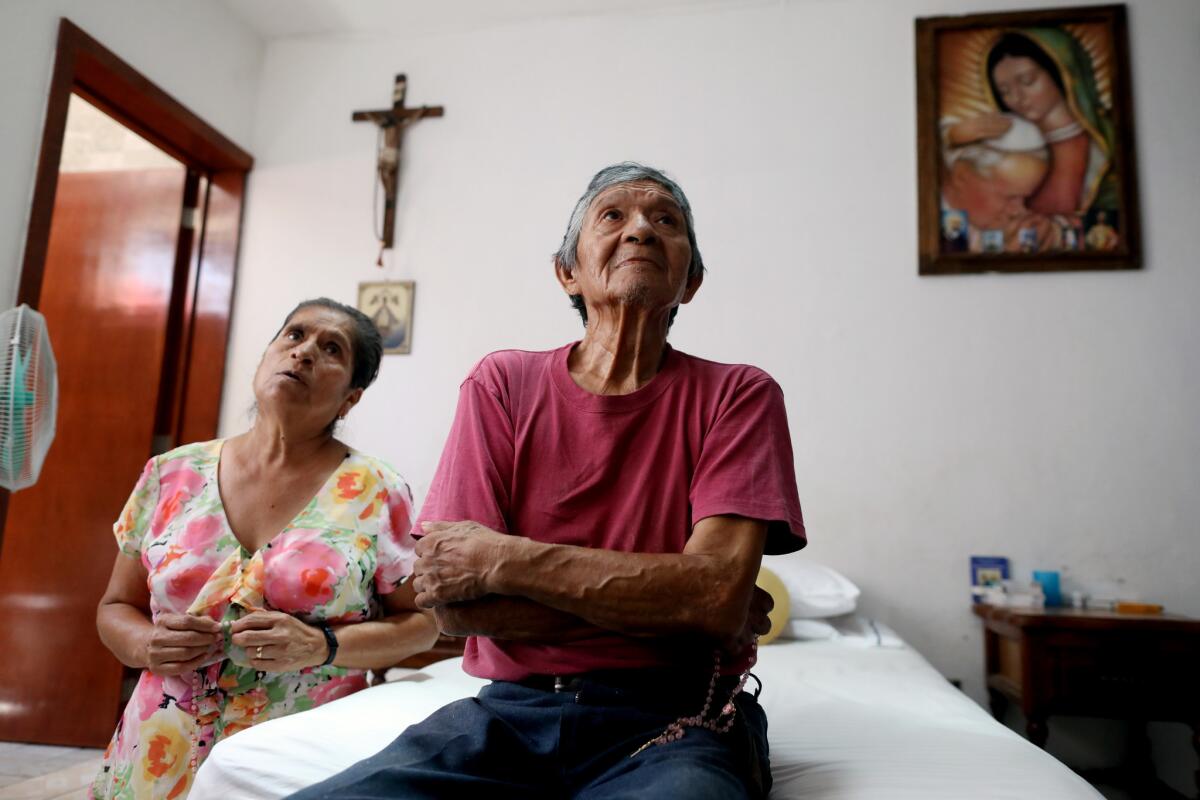
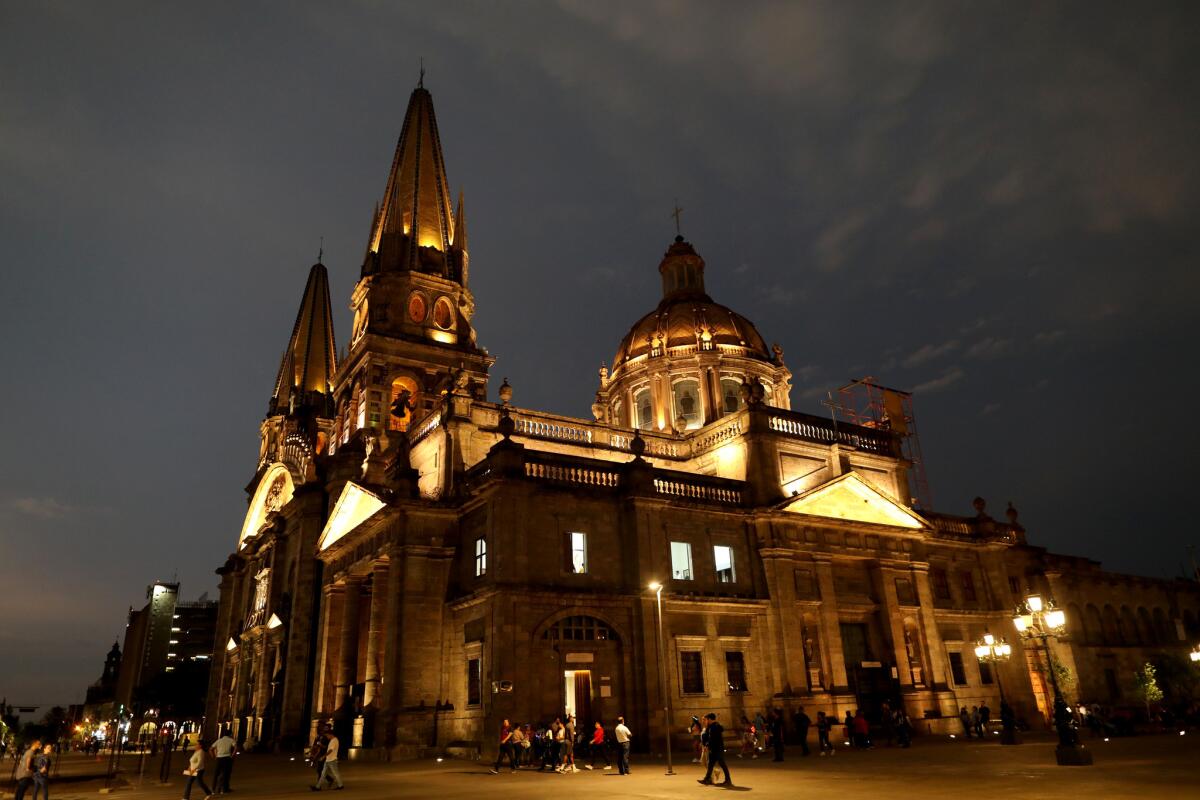
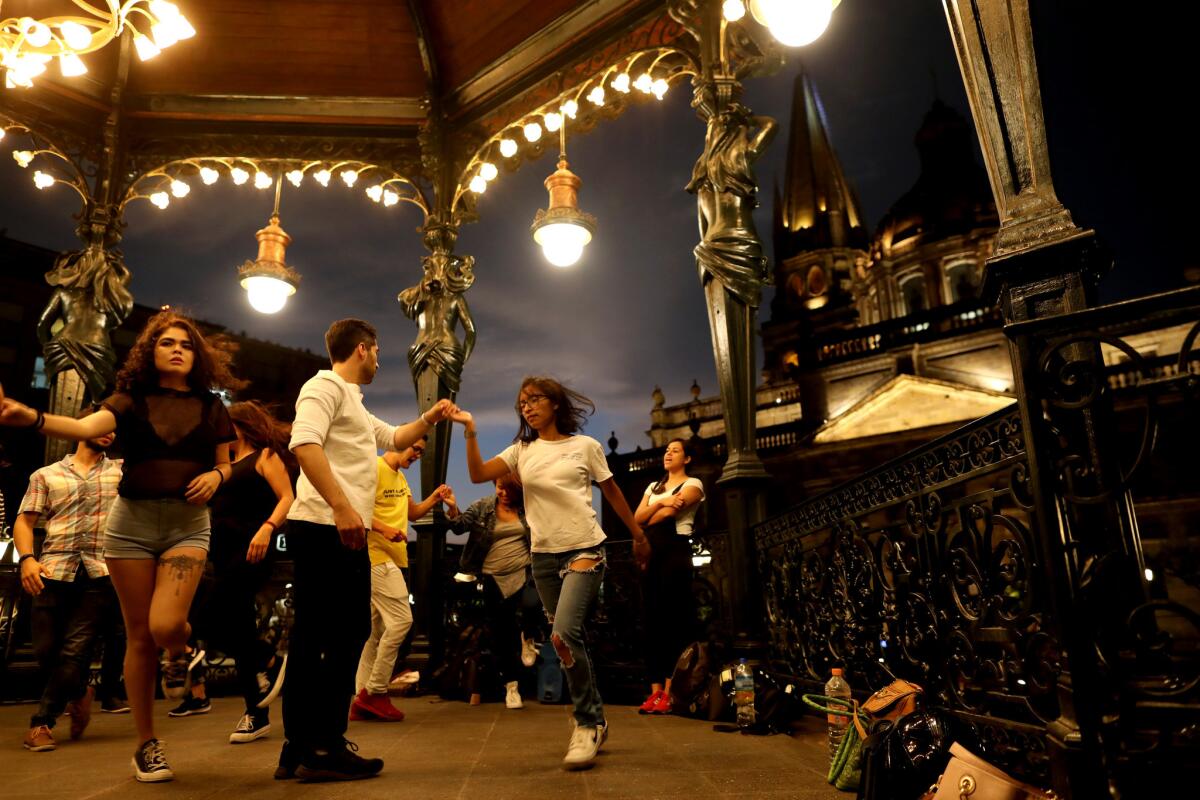
It’s a different story in Catholic homes outside the bubble of the Hermosa Provincia neighborhood.
Inside a one-story home, Maria Guadalupe Hernandez and her husband, Juan Hernandez Hernandez, recite the Chaplet of Divine Mercy, occasionally kneeling down on the tile floor as they pray.
“Have mercy on us and the whole world,” the 70-year-old woman sings along with the program on TV. A framed picture of the Virgin Mary is displayed beside the bed.
La Luz del Mundo, Guadalupe said, thinks the Virgin Mary is “someone bad.”
The couple have lived in the home, with its peeling white paint, for nearly 35 years. They know the homes along their street where parishioners of La Luz del Mundo live.
“They don’t make friends with us and we don’t with them,” she said. “We ignore each other.”
She’s heard about the apostles her whole life, growing familiar with the mythology around them.
Accusations have dogged La Luz del Mundo’s leaders for decades. Flores was the subject of child sex abuse allegations that he adamantly denied. He never faced charges. Unprompted, followers of the church bring up those allegations, calling them “slander.”
“They’ve done awful things,” Guadalupe said. “The three generations.”
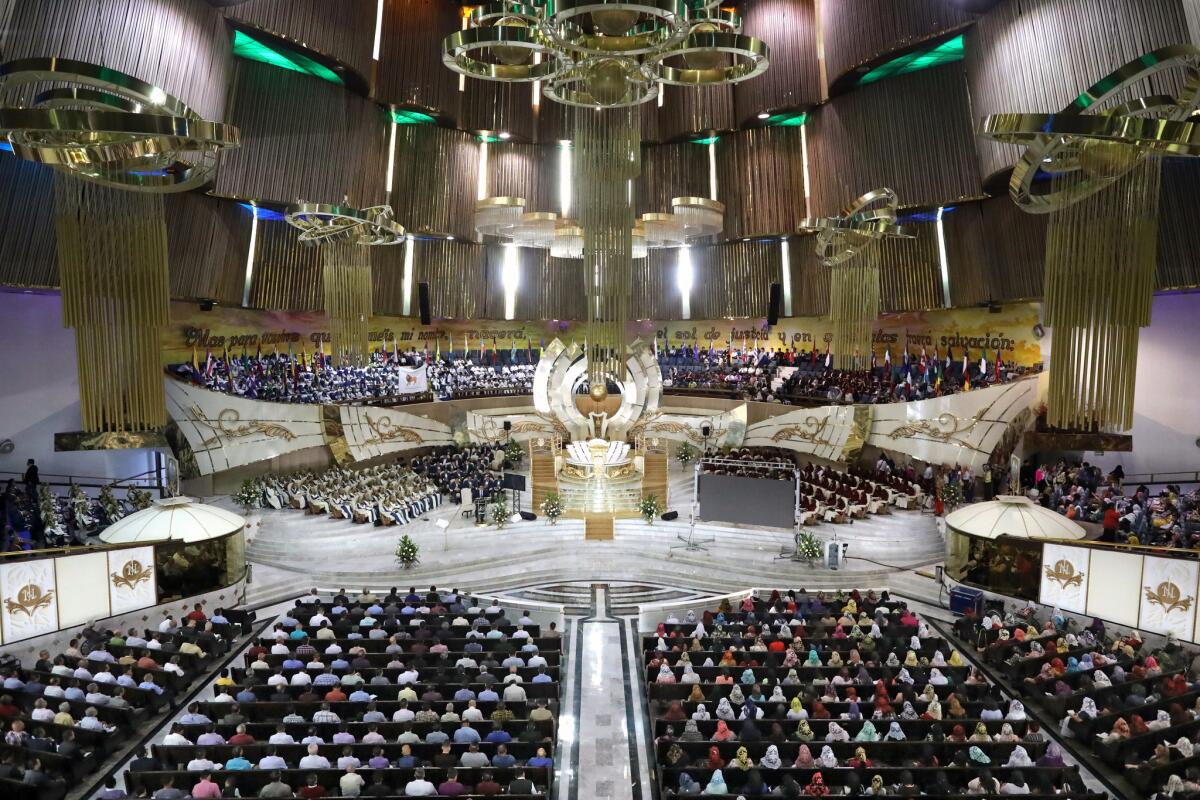
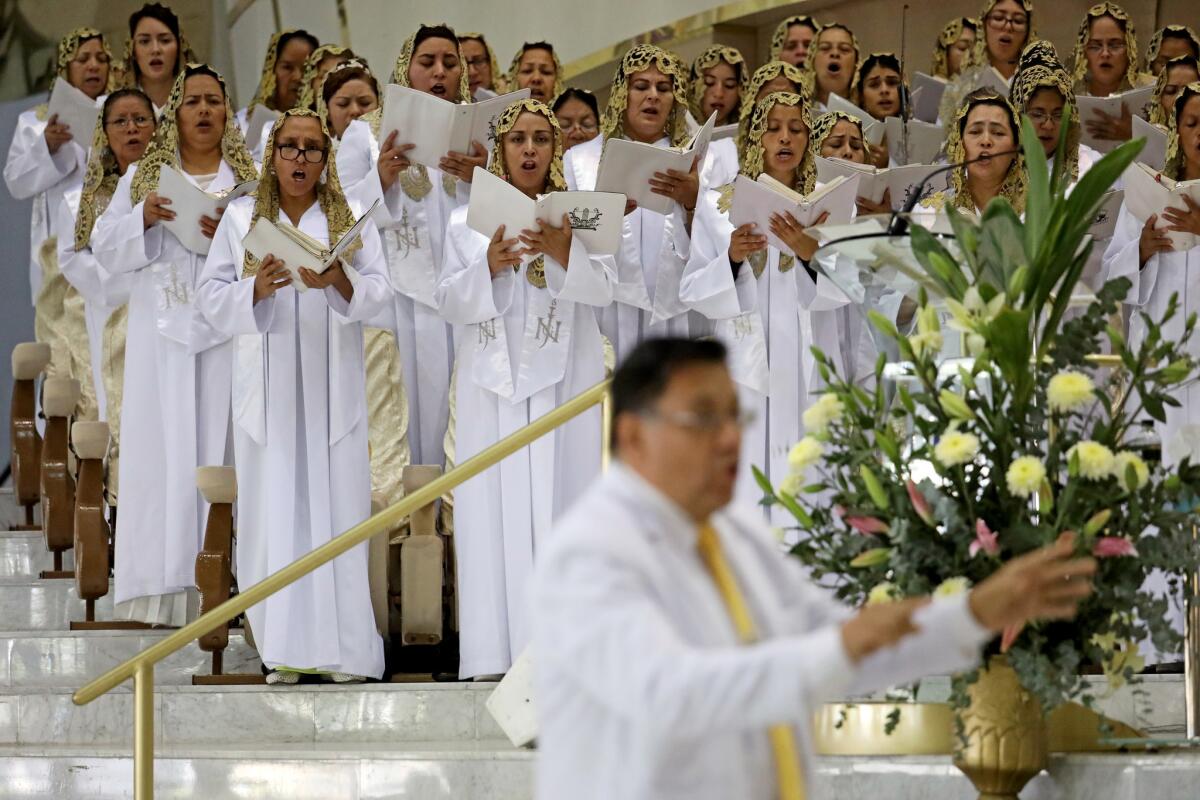
A wail rises up like a wave inside La Luz del Mundo’s temple, rolling along the pews where the men and women sit separate. As the women kneel, they pull their head coverings shut — like drapes over a window — to hide their tears behind lace.
Their words, amid the sobbing, are almost impossible to make out.
“Take care of him, God,” one woman said of Garcia.
No one here will even entertain the thought that he might be guilty. They draw a parallel between the apostle and Jesus, who was arrested, tried and crucified. Garcia, they say, is the reason for everything good in their lives.
Ana Flores, a minister’s widow, speaks at the morning worship, her voice wavering as she tells parishioners that they will prepare their souls to pray for the apostle.
“We’re going to tell God to tell him that we love him. That we’re with him always,” Flores said. “That we’re sending him our hearts and our love.”
On a recent weekend, dozens of children in Hermosa Provincia called out to a tour group: “Bienvenidos!” Welcome.
The visitors passed bushes with the letters “NJG” sculpted into them.
During the tour, Areli Sanchez’s parents called her to check in.
“Are you OK?”
The 25-year-old told them she was fine — although after hearing about Garcia’s arrest on the news, she said, she had a preconceived notion about what she might find here.
“What you see on the TV, sometimes you think it’s true,” said Sanchez, who was visiting from San Luis Potosi. “But when I got here, it’s peaceful. I want to bring my parents to understand so they don’t have an erroneous idea of this community.”
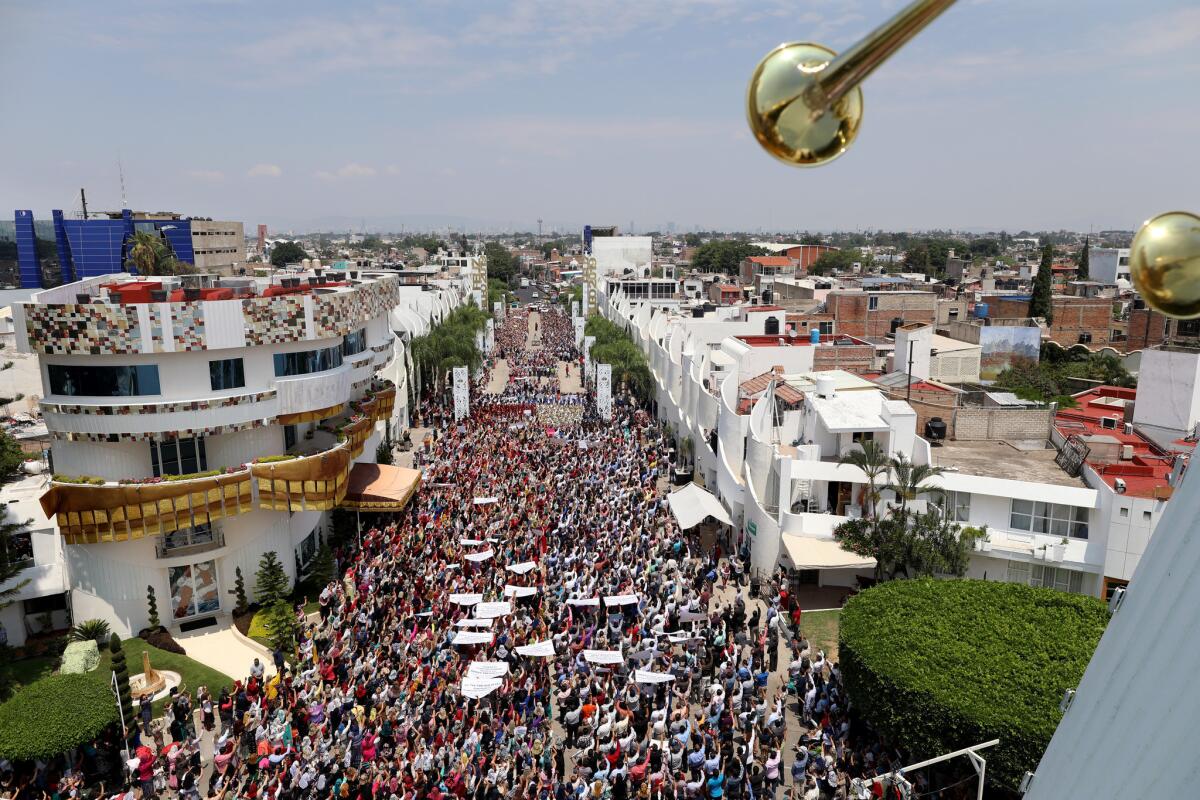
The next day, 12,000 people gathered inside the temple for the Sunday service. In the muggy heat, the women fanned themselves and their children. Their hair fell down to their waists; most wore no makeup.
Like every worship service, this one centered on the apostle.
“Here in Hermosa Provincia, he has a big family,” Pastor Octavio Herrera said.
After the service let out, parishioners packed the area surrounding the temple to record a message.
They stood under the beating sun, thousands of voices strong speaking together:
“Happy Father’s Day, holy apostle of Jesus Christ, Naason Joaquin Garcia. Your children of Hermosa Provincia are proud to always be by your side. God bless you.”
They repeat it over and over for their apostle, trying to get it just right.
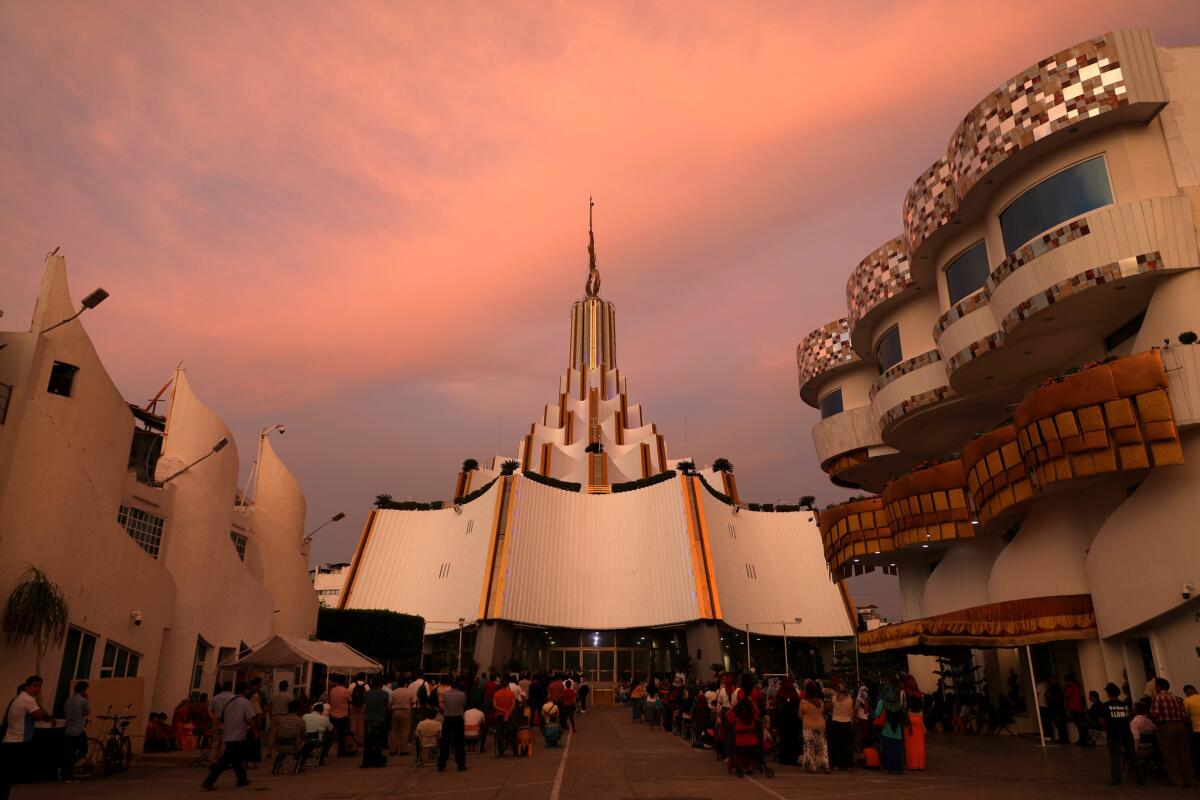
Sign up for Essential California
The most important California stories and recommendations in your inbox every morning.
You may occasionally receive promotional content from the Los Angeles Times.








